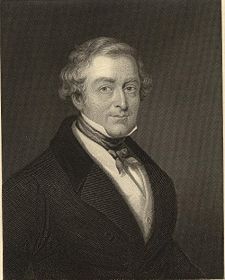Sir Robert Peel.
Sir Robert Peel was an MP for Cashel and home secretary. In 1834 he became prime minister. As Home Secretary in 1822 he set up a select committee to consider the state of the existing police offices, watchmen, constables and Bow Street Patrols, and began to contemplate some form of centralization. Peel was one of the greatest administrators of the 19th century. He had the skills to find a solution to the problems and to win the support for setting up the metropolitan police force.
Sir Robert Peel had already established the Royal Irish Constabulary in 1812, and it had proved to be a great success. It became obvious that something similar to the Irish force was needed in London, so in 1829 the Metropolitan Police Act was passed which provided permanently appointed and paid Constables. Peel realise the criminal code in London and the increasing crime rate and decided to try gain support to create a policing force better than the watchmen who were old and easily beaten by the criminal gangs of Victorian London.
Before Peel made the Metropolitan Police there wasn’t a great deal towards stopping crime. The Bow Street Runners was a small group set up by a blind Judge named John Fielding and his brother called Henry Fielding. Then there were Watchmen, nicknamed Charley’s after King Charles II who introduced them. The problem with Watchmen was that they were useless! The Lord Mayor of London, Matthew Wood said that they spent little time patrolling, instead they would go to pubs with prostitutes or sleep!
The public’s view of Sir Robert Peel’s police force wasn’t great at the beginning. The police men were given the nickname “Bobbies” and “Peelers,” Both of which are still used today. The early police where usually drunks who didn’t do anything to stop the criminals, but this soon changed.
The ‘Bobbies’ wore a black top hat to symbolise grand, or upper class, but not military and on their coats they had a tail which was commonly linked with servants. This meant that they were servants to the people. They carried only a pocket book, which was not used to collect evidence, a whistle. They were all male, went on foot and later given a truncheon. They were poorly paid and trained in a basic military drill and spent most of the day on the beat.
By the end of 1829 there were 3200 police men. In 1833 a new law was passed that allowed towns to set up their own police force then in 1839 another law was passed allowing counties to set up police forces, and the Bow Street Runners and other forces in London where combined with the Metropolitan police. In 1842 the metropolitan police set up its first detective force. In 1856 it became compulsory for all towns to have a police force. In 1870 the uniform was slightly changed. The police were given the still used police helmets and in 1884 the number of police men patrolling the streets of England had risen to 39,000.

